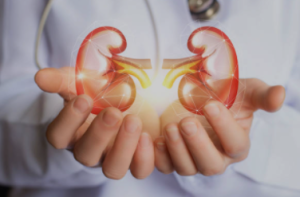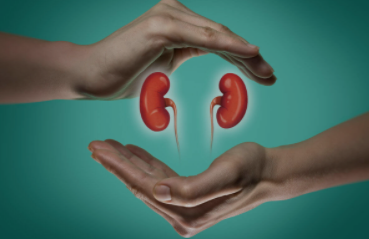
Kidney disease, or renal disease, technically known as nephropathy, is damage or disease to the kidneys. Nephritis is an inflammatory disease of the kidneys and there are several types depending on the location of the inflammation. Inflammation can be diagnosed through blood tests. The function of the kidneys, bean-shaped organs, is to remove waste products such as urea from the body. They also help in erythropoiesis, which is the formation of red blood cells in the bone marrow. If the kidneys are unhealthy, they can lead to a number of other diseases.
Since the kidneys filter waste, excess fluid, and toxins from the body, any type of dysfunction can cause problems such as high blood pressure, fluid retention, electrolyte imbalances, anemia, bone disorders, and even heart disease. The kidneys produce hormones that help control blood pressure. They regulate the levels of various electrolytes (such as sodium, potassium, and calcium) and water in the blood, maintaining proper fluid balance. The kidneys filter waste products and excess water from the blood, which are then excreted in the urine.
Healthy Kidney Diet Guide With Experts

Healthy kidneys are important for overall well-being, playing a vital role in filtering waste, balancing fluids and minerals, and regulating blood pressure. Maintaining kidney health is crucial to keeping you healthy and preventing chronic kidney disease. According to the Journal of Ayurveda and Integrated Medical Sciences (JAIMS), chronic kidney disease (CKD) is a long-term condition where the kidneys gradually lose their ability to function due to a continuous decrease in the number of nephrons. A single healthy kidney can greatly increase its ability to function. With two healthy kidneys, each kidney performs 50 percent of the normal kidney function.
To maintain healthy kidneys, focus on a balanced diet, regular exercise, staying hydrated, managing blood pressure and blood sugar (if you have diabetes), and avoiding smoking and excessive alcohol consumption. Since CKD is irreversible, early detection is very important. Risk factors include high blood pressure, diabetes, autoimmune diseases, older age, a family history of kidney disease, previous kidney damage, protein in the urine (proteinuria), and structural problems in the urinary tract.

Many people believe the kidneys store the body’s essential life energy, says Dr Mickey Meha, Global Holistic Health Guru and Spiritual Life Coach. “Functionally, the kidneys serve as nature’s filtration system, cleansing your blood and eliminating toxins. They work tirelessly to maintain balance within the body and ensure a smooth flow of vital energy,” he adds.

Leave a Reply